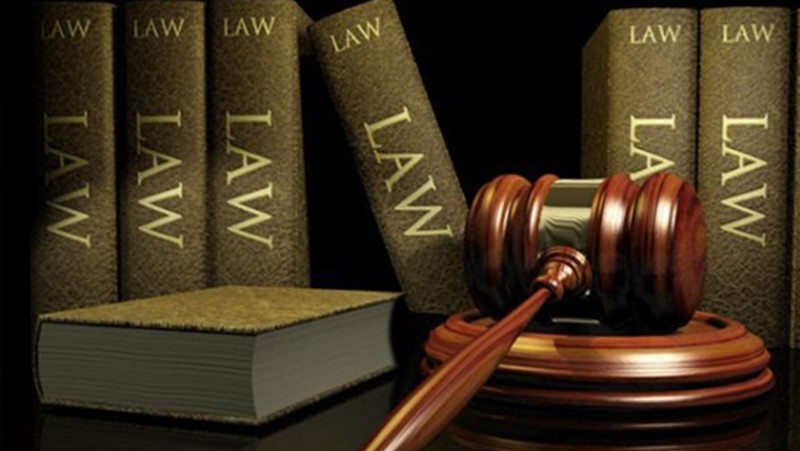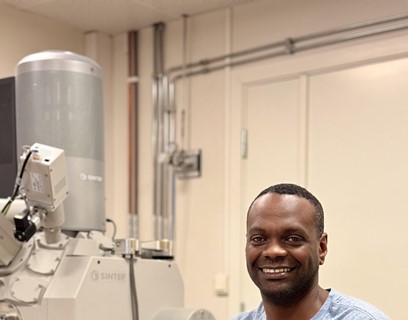
That ‘Sam Sword’ White, an appellant prisoner was denied the use of the legal concept of a Mackenzie Friend, in the recent Court of Appeal hearings on Montserrat, raises concerns for the administration of justice on Montserrat or elsewhere. Sword was not represented by legal counsel and desired to use that legal prop; there are obvious cost advantages for an out of pocket litigant, especially a prisoner, who is not on the open market to ply his skills.
‘Sam Sword’ had expected to rely on a Mackenzie Friend who would stand by his side and guide him in his undertaking. This Mackenzie friend does not have to be a friend but is somebody who accompanies a litigant in person to a court hearing for the purpose of assisting him in such matters as taking notes, helping to organize the documents, and quietly making suggestions – for example as to questions to put to a witness in making his case or how to sift out the best arguments as the case unfolds.
It has its origin in the UK legal system and is widely used in the United States judicial systems. It is so named from a case involving Mackenzie vs Mackenzie, a family matter in which a qualified attorney was denied the opportunity to practice as he was not British, but the trial judge reasoned that this barrister could do so during the court break and must sit in the court gallery. On appeal the judgment was reversed and a new trial ordered as Mackenzie was deemed to have lacked representation.
The practice of this guinea pig idea has been a very limited feature, in the Montserrat jurisdiction. It is received with polarized enthusiasm.
As efforts continue to smooth out kinks in the workings of the judiciary; especially at the level of the magistracy, court room justice demands constant vigilance to those unable to access legal counsel. Court recordings at the lower court leave much to be desired. An unrepresented party has no control over what is recorded as evidence. It may not be able or in a position to record its version of events. The prosecution or those capable of recording can register or alter at whim; there is no electronic recording for back up; no videos or any such gadgetry which can present a corroborative picture to the Appeal Court if needed. In case of an appeal it is the State’s account that prevails and it can suffer from inaccuracies or simply be incomplete; the appeal court takes it at face value; it is never enough.
The Justices’ rejection of the notion of the Mackenzie Friend was pre-conceived though silent. It was not addressed. No opportunity to evaluate their position was afforded; it is reasonable to guess that the experimentation is short lived with a premature extinction of this alternate mechanism to access justice.
As a rule efficiency in outcomes within a court requires a litigant to at least be armed with a competent lawyer, as not all lawyers are equal. Each case requires an advocacy that fits a certain personality profile and a litigant ought to go shopping for that touch: an ability to quickly grasp the essential nature of the problem/issue, adept at researching relevantly and most importantly the advocacy that is unique to the circumstances that prevail, to the advantage of the client. Advocacy in the court of life itself spins predominantly on what your essential being – what you show the world – dictates.
Getting the best that is affordable makes economic sense for both claimants and defendants as law is a highly technical subject, with specialized language, practiced in a setting that can be intimidating to the faint of heart. At the same time many would argue that it is glorified common sense cloaked and coded in a language of its own, that makes for a mystery.
In Sword’s case the Chief Justice initiated the notion of a court-appointed lawyer from the walls of the local bar, to give him the best opportunity to assert his position. But it does not help immediate objectives as his prison sentence ends before the next appeal hearing, a major time related injustice of the system.
Taxpayers will pay dearly for this Judge inspired reminder that policy makers have been keeping close to their chest. It should never be that each defendant should rely at the goodwill of the State whenever he finds himself in trouble with the law. It is the same State that is defending and prosecuting (maybe persecuting) and there lies one of the quirks of a democracy built on the rule of law. It can be a moral hazard. The State exacts revenge on the behalf of the people; the State defends you, in your interest because everyman needs to be afforded a defense. The State then provides shelter and food for you at its expense until you are duly released if incarcerated.
The State should set rigid guidelines to weed out opportunistic lawyers and litigants, who guile to corrupt the process to the detriment of an idea which needs rigorous testing and watchful management. Legal aid as it is called is potentially a twin edged sword. Can the State afford such an undertaking sustainably without periodic reviews? Should not this be coupled with more wholesome modalities aimed at creating greater productivity in the judicial arm of the State? Should the State be the bearer of the cost of your troubled tendencies?
The problem as made clear in the court is that lawyers whom Sword contacted had timetabling issues and could not accommodate his instructions. That can translate into a grand excuse for not wanting to assist the litigant for a multitude of reasons not in any way related to the stated position in Court. ‘Sam Sword’ and his ilk, meaning his type of personality that questions and seeks to know more, can be seen as irritants; thus they need to be shown more understanding, given their personal attributes; to help overcome any challenges they may possess.
Telling a client to write his case on paper for the lawyers’ guidance is at best callous and indifferent. How about interviewing and distilling the points of law and build from that standpoint? Skill in communication can be the lawyers’ trump card. One can easily exhaust the search for a suitable lawyer in a jurisdiction as small as ours and where lawyers speak to each other, thus influencing and limiting the choices available to get legal representation.
The practice of law is not perfect. Experience suggests that it is elusive. But the Chief of the Justices, Janice Pereira seems to be ahead of her time, composed and articulate, bold and directional, with emphasis on fairness and more importantly openness.
Let us capitalize on these qualities in moving the process forward.
Note: Claude Gerald is a social commentator on Montserrat. Reach him at Ceegee15@hotmail.com


